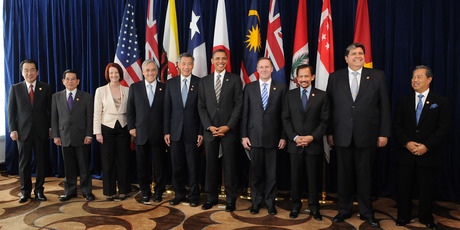Transforming business for the Trans-Pacific opportunity
By Darren Read, General Manager, Services Australia and New Zealand, Avaya
Friday, 13 May, 2016

The Trans-Pacific Partnership (TPP) is still shrouded in a level of uncertainty. The real, quantifiable impact of the potential agreement on Australia and New Zealand’s economies won’t be clear until legislators dot the i’s and cross the t’s.
The World Bank recently reported that it expects the TPP to increase Australia’s economy by less than 1% and New Zealand’s by about 3% by 2030, painting something of a bleak outlook for the much-hyped proposition. However, in the same report, the World Bank indicates Australian and New Zealand exports will rise by about 5 and 13%, respectively. It is in this regard that local organisations will see significant opportunities to expand their businesses in TPP member nations.
For example, small to medium-sized businesses and start-ups alike — which make up the majority of the A/NZ markets — will move to paperless trading, making imports/exports and customs more efficient and accelerating supply chains across most industries. Meanwhile, standardised e-commerce platforms will create a level playing field for A/NZ start-ups and entrepreneurs. Similarly, A/NZ services will be open to a much wider market, allowing our local expertise to explore opportunities (in sales and partnership) that were previously difficult to pursue.
Capitalising on the opportunity won’t happen overnight, nor will it be an easy task once the proverbial floodgates open. Should it go through as proposed, the TPP is likely to trigger a surge in overseas players in various industries looking to compete on price, and we may see undercutting across the board — from consumer electronics and retail goods to medicine, manufacturing, software and services, and perhaps even groceries.
But rather than fighting the price war, A/NZ companies need to focus on evolving their businesses to deliver high-value products and services, and consequently secure long-term revenue streams through business collaboration and consumer engagement. The TPP winners will be organisations that enable efficient business models by replacing their traditional approaches with strategies that leverage ICT to integrate products and services, customer demand and business processes with intelligent data analytics. It’s no longer just about owning and using various technologies, nor is a multichannel customer engagement strategy sufficient. Digital transformation can make this possible.
At Avaya, when we speak to our clients we partner with them to discover how they can capitalise on the TPP’s open governance. We discover the opportunities they have in brokering analysis, people, devices, media (including social) and business events to inform the best business practices and therefore augment and deliver a superior customer experience. We also emphasise that, like with any major business change, early commitment from business leaders is instrumental in driving success. One of the areas where we can turn weaknesses into strengths is when a new corporate culture is created and endorsed to recognise the power of data, analytics, automation and intelligence to drive real outcomes for consumers, particularly in new markets where customers are already familiar with certain brands, interactions, customs and purchasing trends.
Expecting ‘business as usual’ to succeed when international competitors are already engrained into the market doesn’t work — this is true when delivering professional services to foreign businesses, producing clothing for citizens of nations with varying cultural traditions, developing medicines with certain substances, and so on. By undergoing a transformation, A/NZ companies tackling the TPP opportunity will be in an ideal position to generate new and expand existing business and ultimately move beyond existing forecasts around exports.
AI at scale demands a new approach to data resilience and privacy
Data Privacy Week is a timely reminder that taking control of your data is a strategic...
Australia's path to AI sovereignty lies in strategic control, not reinvention
Many argue that Australia's priority should be building sovereign AI infrastructure and...
Can Australian businesses afford to waste $557 million?
The real barrier to AI isn't tech hype, it's the old systems we refuse to fix.



